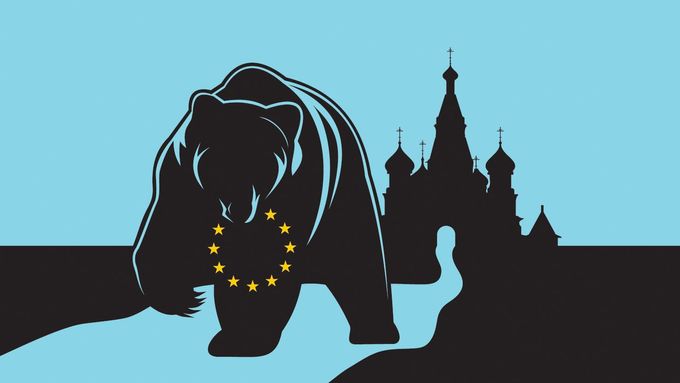Prague - Leading candidates for next European Commission (EC) President have warned against Russia during a broadcast debate.
"For years, I've emphasized that Europe, the European Union, is primarily a peace project and I kept being told that was old talk ... Now we're discovering, in close proximity to the EU, that the issues of war and peace have not resolved themselves," former Luxemburg Premier Jean-Claude Juncker told Reuters.
President doesn't attend WW2 event at Russian embassy
OSCE observer: They told us we would serve as human shields
“EU member states must now stand united against Putin and prevent Ukraine, a country of 45 million people, from being carved up,” said former Belgian Premier Guy Verhofstadt. "The situation will pressure politicians into working more together on the European level. Not only in foreign policy but also in energy," he was quoted as saying by Reuters.
However, radically eurosceptic and anti-immigration parties tend to sympathize more with Russian President Putin than with the Ukrainian government in Kiev.
The UK Independence Party (UKIP), France's National Front led by Marie Le Pen, the Alternative for Germany (AfD), or the Dutch Freedom Party founded by Geert Wilders, a critic of Islam - all these political parties have expressed their support for Putin and Russia. And if their candidates succeed in the European elections this weekend, Moscow will be pleased.
The Ukraine crisis has brought attention to the issue of security and energy supplies, giving a boost to pro-European parties, said German Institute for International and Security Affairs (SWP) analyst Kai-Olaf Lang in an interview with Aktualne.cz. “In general I think that the Ukraine crisis is boosting pro-European forces. Those who are in favor of a deeper integration of the European Union.”
In the Baltic states and Poland, the ongoing Ukraine crisis is a central issue, and many voices call for a united response from the EU. One of these voices is Polish Premier Tusk and his pro-European Civic Platform (PO). Earlier this year, Tusk also called for a united European policy on gas imports from Russia. Thanks to these appeals, Tusk's party has managed to erase the lead of former Polish Premier Jaroslaw Kaczynsky's eurosceptic Law and Justice party in opinion polls.
In the Czech lower chamber, the most significantly pro-Russian parties are the opposition Communist Party (KSCM), the Dawn of Direct Democracy, and a part of the senior-ruling Czech Social Democratic Party (CSSD).
However, there is also an economic side of the issue. German exporters warn the government that any radical move against Russia may hurt the Germany economy. For the same reason, Czech Premier Bohuslav Sobotka (CSSD) is skeptical about sanctions against Russia. And, after a short hesitation, France eventually decided to supply two aircraft carriers to Russia, in order not to lose a lucrative deal.
“Many people agree that it is necessary to face Putin more decisively. But they are also reluctant to make sacrifices. They have made enough sacrifices in the last four or five years since the start of the crisis," European Council on Foreign Relations senior researcher Jose Ignacio Torreblanca told Reuters.
Follow us on Twitter!

